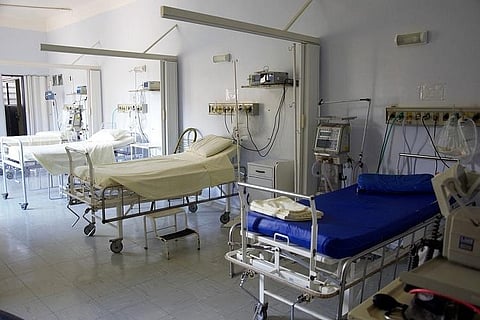

After Karnataka, the state of Telangana is reporting an increasing number of swine flu cases. According to health department officials in the state, as of Sunday, there have been two deaths confirmed due to swine flu.
In Hyderabad’s Gandhi Hospital, 12 cases of swine flu have been confirmed and three suspected cases as of Sunday. A 52-year-old woman was reported to have died from suspected swine flu on Friday.
“We are seeing an increase in the number of cases now. Roughly about 50 positive cases are reported in the state now. We are monitoring the situation carefully to tackle it as best as possible,” said Dr Shankar of the Institute of Preventive Medicine (IPM) in Hyderabad. “Around this time of the year, we usually do see an upswing in the number of cases of swine flu. We are expecting to see more even now.”
He further added that state health department officials are encouraging everyone to take all precautions necessary and to maintain strict self-care planning as well as take personal hygiene seriously.
“There are some people who ignore the symptoms of swine flu because they don’t realise that it could be a larger problem. We are encouraging people to go for check-ups if they are presenting with any signs of swine flu,” he added.
Swine flu, or H1N1, is caused by the influenza A virus. Pigs were found to be the primary host, although it can be transmitted to a person from an infected individual.
The most commons symptoms of swine flu are fever, sore throat, myalgia (muscle pain), general body aches as well as coughs. During the course of the illness, should an individual present with breathing difficulties, recurrent fever and cough, it may be indicative of a more severe problem, which requires urgent medical attention.
A vaccine is available against the virus but is not administered regularly as part of the routine immunisation programme. Medical professionals and others who are likely to come in contact with the infected individuals have been recommended to get the vaccine.